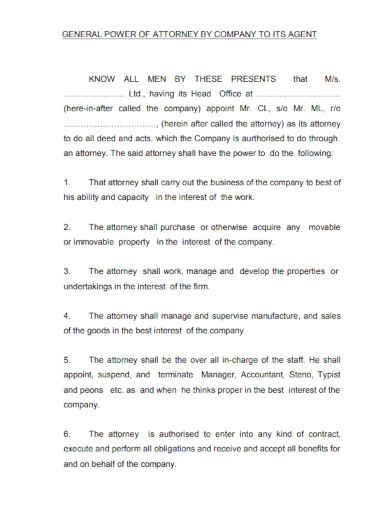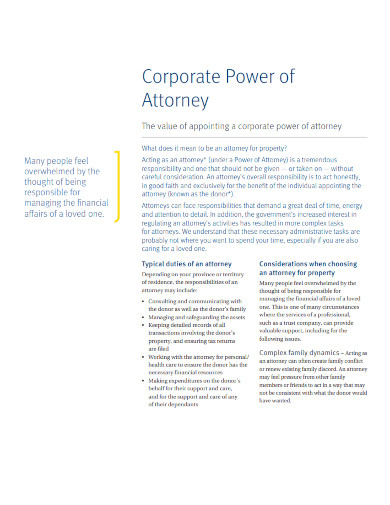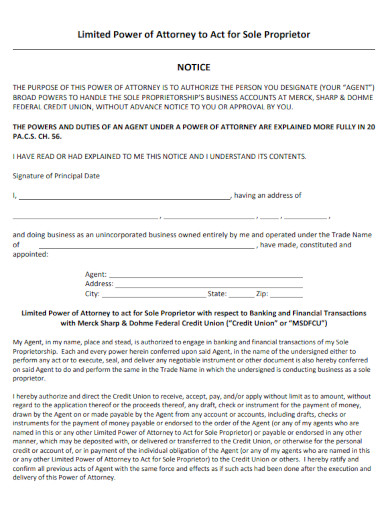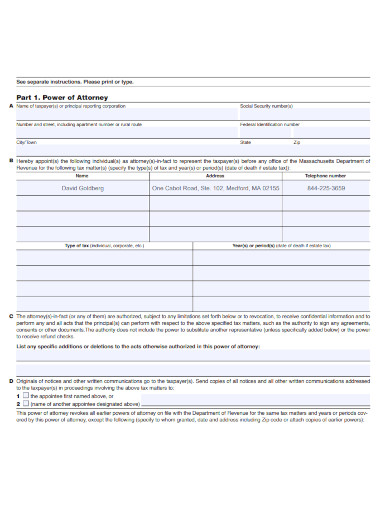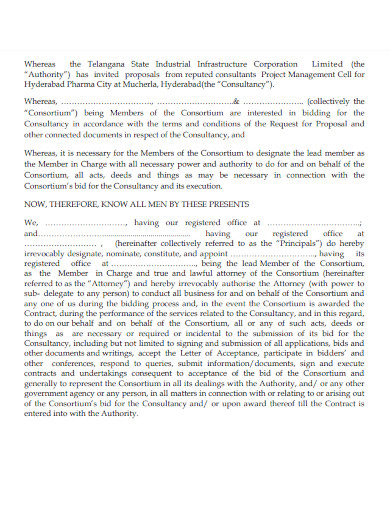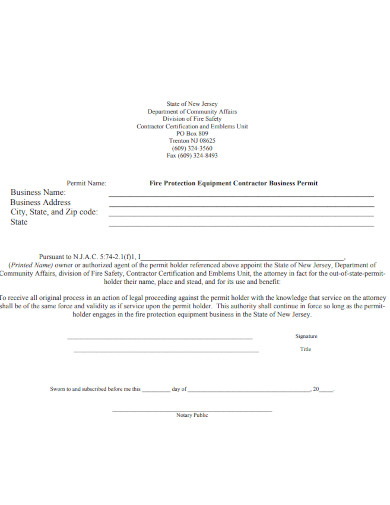Power of attorney is commonly used in the event of a principal’s short or long-term illness or disability, or when the principal appears unable to sign appropriate documents. A power of attorney can be revoked for a number of reasons, including the principal’s revocation or death, the agreement being declared invalid by the court, or the agent’s inability to carry out the defined tasks. If the principal and agent of a married couple divorce, the consent may be null and void.
The use of power of attorney is common when a principal suffers from an illness or disability that could last for a short or long period of time, or when the principal appears to be unable to sign appropriate documents. It is possible for a power of attorney to come to an end due to a number of different circumstances, such as the principal revoking the power of attorney, the principal passing away, the agreement is declared invalid by a court, or the agent being unable to carry out the responsibilities that were outlined in the power of attorney. In the case of a married couple, the consent might be considered void in the event that the principal and the agent get a divorce.
5+ Business Power of Attorney Samples
1. General Business Power of Attorney
2. Corporate Business Power of Attorney
3. Business Limited Power of Attorney
4. Business Power of Attorney Declaration
5. Business Power of Attorney for Lead Member
6. Contractor Business Power of Attorney
What Is a Business Power of Attorney?
A power of attorney for business gives the agent the authority to act on behalf of the principal in any circumstance for which the applicable state law allows it. Under such an arrangement, the agent might be given the authority to handle the principal’s bank accounts, sign checks on the principal’s behalf, sell property, manage assets, and file taxes on the principal’s behalf.
Writing a Business Power of Attorney
Even though a letter granting power of attorney gives another person the authority to act on your behalf, this does not mean that you lose the ability to take action or make decisions for yourself. In point of fact, even if you and your Agent have different opinions, the choice ultimately rests with you. For the sake of saving time and effort, you should seek the advice of an attorney before you attempt to write a letter granting power of attorney permission. You also have the option of writing the letter on your own by following the steps outlined below:
- Come up with a draft
The very first thing you need to do is compose a rundown of the unique skills that your Agent will be able to possess. You need to be very specific when describing the accounts, properties, and transactions that will fall under your Agent’s purview because they are quite exceptional and deserve to be treated as such. - Make decisions about springing powers
It depends on whether or not it possesses a springing power. The Agent will be unable to make use of these abilities unless the occurrence of a certain event or the fulfillment of certain conditions has taken place. When it comes to a power that is contingent on a condition or event taking place, the Agent is not permitted to legally act on your behalf before that condition or event takes place. Your letter will take effect as soon as you sign it, even if the form of power that you are using does not require the use of a provision for the power that you are seeking. - Choose your agent and successor
Appointing your agent is the step in the process of writing this letter that is considered to be the most important. You need to be able to put your faith in the Agent that you choose. Additionally, it is recommended that you choose a Successor Agent in the event that your first option is not available. - Add the expiration date
In your letter, you need to make it perfectly clear that the duration of your Agent’s authorization is strictly limited to a predetermined span of time. On the other hand, if you want the letter to remain valid even after your death, you can make what’s called a “durable power of attorney.” The consequences of this will still follow you even if you become paralyzed. Remember that your power will vanish the moment you pass away, no matter what kind of letter you choose. - Finalize your letter
Once you have gathered all of the information that you will require, you can proceed to finish writing your letter. When describing the contents of the document, make sure to use language that is unambiguous and straightforward. In your letter, make sure to include your full name, the full name of your Agent, as well as the full name of your Successor Agent. You should also include the date that you wrote the letter.
FAQs
What is the difference between the power of attorney and a letter of authorization?
These two letters are quite similar to one another, despite the fact that their respective scopes are very different. When it comes to a particular matter, having a letter of authority in your possession gives you the ability to act on behalf of another individual. When all of the tasks that were stipulated in the letter of authority have been finished, the assignee is responsible for putting an end to the document. On the other hand, the power of attorney permission letter grants the assignee authority over a wide variety of different transactions.
What is the best form of power of attorney?
You have the option of writing a general power of attorney or a limited one. The agent is vested with broad decision-making authority under the terms of a general power of attorney. If you want the person to have as much freedom as possible to manage your care and your assets, this is the best choice you can make for yourself.
Who can override a power of attorney?
A power of attorney, also known as a POA, is a legal document that authorizes one individual (the agent) to act on behalf of another individual (the principal) and to make decisions on the principal’s behalf. A quick answer is that a power of attorney can always be overridden by the principal if that person is still of sound mind.
A letter authorizing someone else to act on your behalf and carry out responsibilities that you won’t be able to handle for any number of legitimate reasons calls for a power of attorney authorization letter to be in place. When there are two or more identities on bank accounts, properties, or brokerage accounts, and the principal is unable to act for valid reasons, a power of attorney is required. This includes situations where there are two or more identities on the accounts. In conclusion, please do not hesitate to use any of the sample letters of authorization for powers of attorney that have been provided in this post whenever you find yourself in need of one.
Related Posts
FREE 5+ Sale Power of Attorney Samples in PDF
FREE 5+ Lease Power of Attorney Samples in PDF
FREE 10+ Property Power of Attorney Samples in PDF | MS Word | Google Docs
FREE 6+ Special Power of Attorney Samples in PDF
FREE 10+ Health Care Power of Attorney Samples in PDF | MS Word | Google Docs
FREE 6+ Company Power of Attorney Samples in PDF
FREE 5+ Affidavit of Desistance Samples [ Case, Settlement, Claim ]
FREE 10+ Affidavit of Funeral Expenses Samples [ Claim, Cost, Benefits ]
FREE 6+ Affidavit of Translation Samples in PDF
FREE 2+ Supporting Deposition Samples in PDF | MS Word
FREE 9+ Sample Orders to Appear in PDF
FREE 5+ Mortgage Deed Samples & Templates in PDF
FREE 13+ General Power of Attorney Templates in PDF | MS Word
FREE 19+ General Affidavit Samples and Templates in PDF
FREE 9+ Patent Assignment Samples and Templates in PDF

